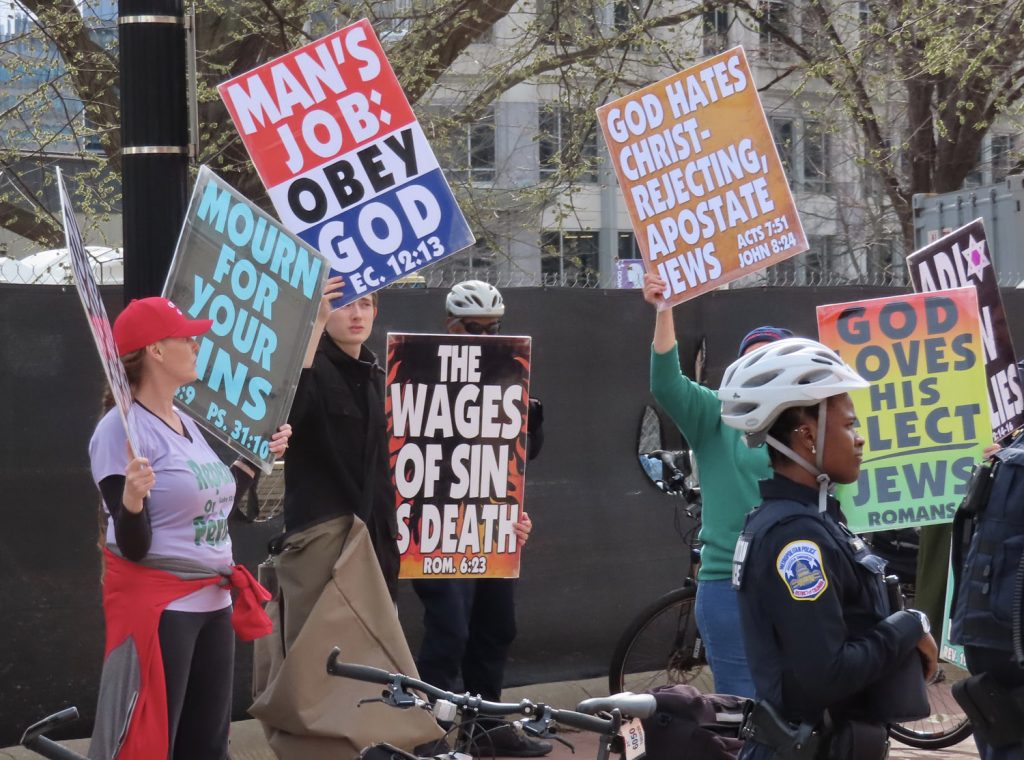Australia/Israel Review
The Last Word: Reality and Reportage
Apr 17, 2019 | Jeremy Jones

The gulf between reality and reportage is rarely as obvious as in the case of the annual Policy Forum of the America Israel Public Affairs Committee (AIPAC), the organisation devoted to maximising the America-Israel relationship and its ability to provide mutual benefit.
AIPAC endeavours to expose the broad spectrum of American opinion to the complexities and nuances of modern Israel and its challenges, yet is often depicted as a one-dimensional, subversive lobby group.
At AIPAC in 2019, I had the opportunity to speak to Palestinians from Gaza and the Palestinian Authority currently engaged in programmes with Israeli partners for the benefit of their own communities, American Christians and Atheists, and Muslim scholars and Hispanic students. All relished the opportunity to speak honestly and openly about how they saw the benefits of the US and Israel working cooperatively.
It didn’t need the uninformed and bigoted comments by a handful of otherwise barely noticeable rookie US Members of Congress to inspire a focus on bipartisanship or on Israelis working towards social justice and contributing to global development. The overt and covert antisemitism and anti-Israel bullying of these comments was made to look ridiculous and absurd due to this reality.
A Sunday afternoon ritual is anti-AIPAC demonstrations outside the conference venue.
I spent some time among the rag-tag assembly broadly united on the theme of #stopAIPAC. It was interesting to see and hear the arguments or slogans being proferred and who was doing the proferring.
The largest identifiable group consisted of the theological buffoons of the Neturei Karta sect, well known for their cozying up to Holocaust deniers and genocidal antisemites while dressed as nineteenth-century European religious Jews. This group, which elevates support for Hamas above Sabbath observance, added monochrome to the otherwise colourful protests.
The loudest protestors represented the notorious Westboro Church, singing songs glorifying the eventual burning-in-hell of Jews (along with gays and other non-Westborons).
There were a number of small groups of disparate far left or simply anti-Israel demonstrators, who came together briefly so they could be filmed and live-streamed looking unified. However, once the formalities were over it became obvious that they were in no way coherent.
This lack of coherency extended to the arguments advanced in a series of mini-debates between protest leaders and student AIPAC delegates. Having been at many such events in the past, it struck me this year that the anti-AIPAC army were so poorly equipped that they were easily made to look ridiculous by teenagers with no particular expertise.
I noticed quite a number of those who had come to support the #stopAIPAC demonstration actually start agreeing with pro-Israel students as to the value of dialogue over polemics.
It seemed doubtful that any objective observer would have seen the #stopAIPAC protest as anything much more than a sad performance of the theatre of the absurd but, as I noted earlier, there can be huge gaps between reality and perception.
A few hours after the rally, I found myself in midtown Washington looking for a reception for an organisation promoting human rights in Africa and the Middle East. When I went into a restaurant to ask directions, I found myself welcomed and then ushered into a hall where, after a few minutes, I realised the theme was a celebration of the “victory” of the #stopAIPAC demonstration.
Before I gave my apologies to my new friends on the grounds that I was clearly not at the reception at which I was due, I witnessed the self-declared leader of the movement against AIPAC not only proclaiming their great success but explaining, forensically, how social media and the American public were being manipulated to believe clear distortions and misrepresentations regarding the protest and AIPAC itself.
It was interesting to note how a theme of AIPAC had been the importance of honesty, integrity and openness in engagements, while #stopAIPAC was about taking pride in propaganda.
To an objective observer, it should have been very clear which of the two represented progressive values.
Tags: International Jewry, Israel, United States






